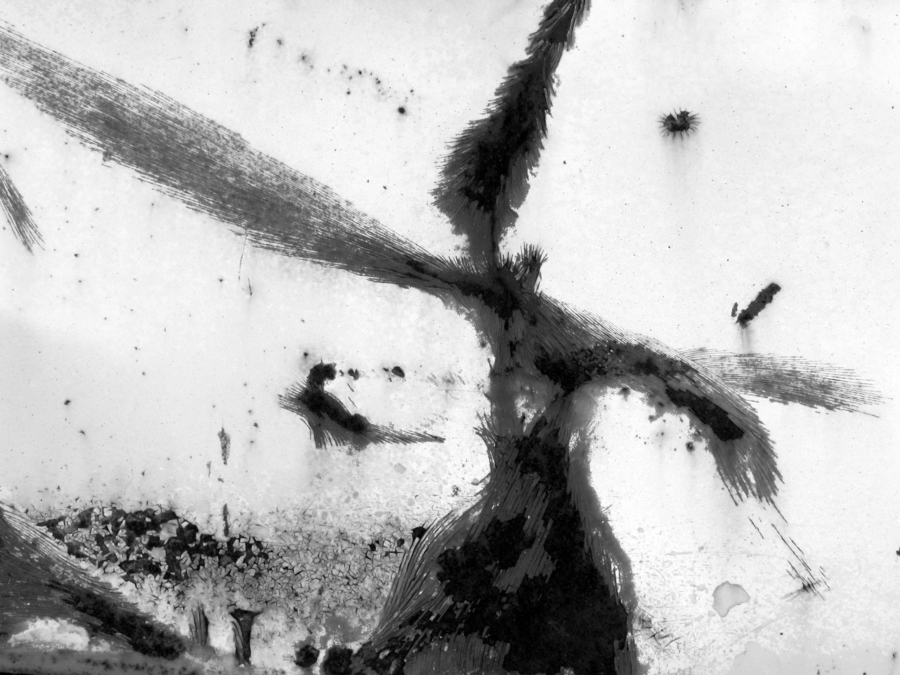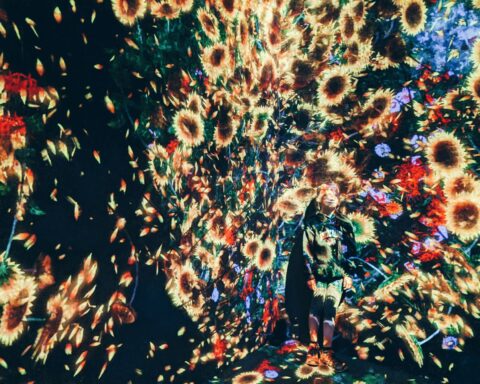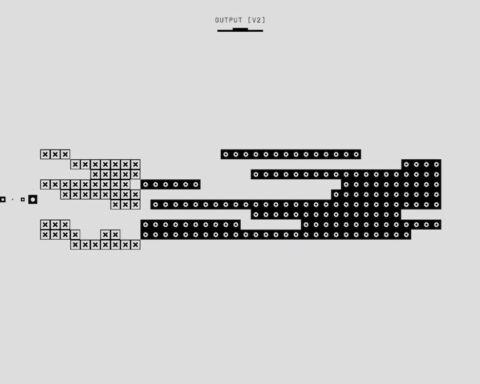We have been analyzing the dead
tissues too long, all wrong: the dead
body on the autopsy table is just
a stack of collapsed compartments—
crawlspace, attic, the walled-over
closet. We missed an entire organ,
the interstitium, between the other
spaces, and inside the interstitium
the stranger secreted— the ex in
the attic, the Jeremy in the basement,
the homeless woman in the cupboard,
the closet, discarded just like your
intuition (the reports of lights, the stove
warm when you swear you haven’t
touched it, the creaking and scraping,
the money missing and the Cheerios
half-eaten). Sometimes we are online,
shopping to forget the families being
bombed in their basements, and a stranger
is watching through a peephole drilled
through the crawlspace. Sometimes those
strangers in our houses are discovered
by their little cups of pee. Sometimes the strange
in our bodies is revealed by what seeps
from those other spaces, like the space
inside the barrel bomb that sloshes
with nerve agent. You are not what you own.
You are not what you leak.
If the dead body on the autopsy table is
a stack of collapsed compartments—
crawlspace, attic, bombed-out apartment—
then grace is the space where
a family once hid. What strangers hide in me?
READ MORE
Scientists discover new human organ hiding in plain site [The Irish Times]
Women’s ex, hiding in attic, falls through ceiling [Salina Journal]
Fugazi – Merchandise [YouTube]
Shelley Puhak is a poet and essayist who lives in Baltimore, Maryland. She is the author of two books of poetry, the more recent of which is Guinevere in Baltimore, winner of the Anthony Hecht Prize. Her poems have recently appeared in Cincinnati Review, Kenyon Review Online, Verse Daily, and Waxwing.










